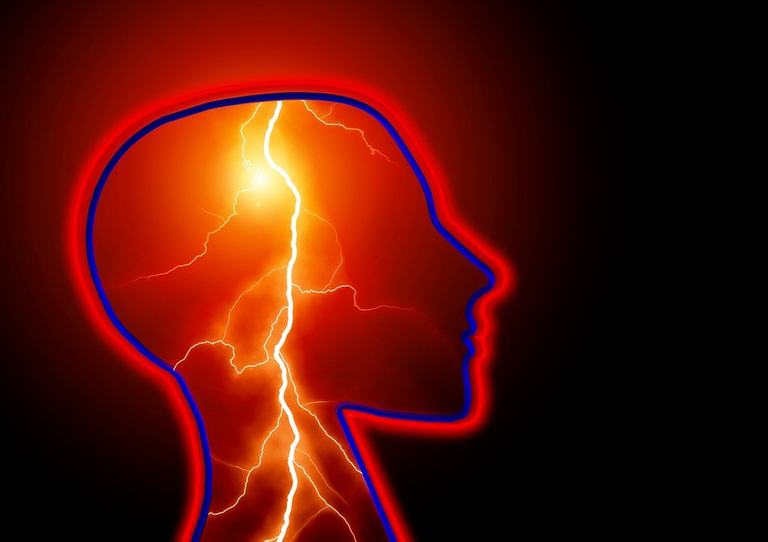
After some minutes, the baby girl became calm then we called her mother for clerking to help us plan properly for her daughter's care. The woman is a devoted Christian and a strong believer (I wouldn't want to mention her church). After collecting information on her biodata, I tried to find out the baby's past health history and family history; from my findings, the 3-year-old was diagnosed with sepsis just 2 weeks before they traveled and is still on medication. She also got an injury on her knee two days ago while playing with her peers. So what could have caused the convulsion?. We'll know at the end of the article.
A lot of people have a delusional perception of convulsion. I once met someone who told me that convulsion is due to cold. Anyway, this article today will answer in layman's terms some frequently asked questions on convulsion.

Is convulsion a spiritual or demonic problem?.
Convulsion is entirely a medical condition and not a spiritual problem. Actually, The brain is like a network of nerves that carry signals to and from the body. Any condition that disrupts these signals can lead to convulsion.
What is Convulsion?
Convulsion is a sudden, uncontrollable movement of the body.
What causes Convulsion?
There is no particular cause of convulsion. I love to describe convulsion as a reaction to a medical condition and not necessarily an illness or disease. Factors such as high fever, head injury, tumors in the brain, very low blood glucose, very low blood pressure, blood infection, heart problems, etc can trigger convulsion.
How do you know someone is convulsing?
Some notable signs and symptoms of convulsion include:
- High fever (Almost all cases of convulsion involve high fever and a clinical thermometer is the best for detecting a high fever. A temperature higher than 38 degrees celsius is considered very high.
- Stiffness and jerking of the body.
- Rolling of the eyes (In most cases of convulsion, the pupil (dark part of the eye) rolls to the side or to the back).
- Excess production of saliva.
- No response (the individual is unable to respond to his or her name).
How long does convulsion last?
Convulsion can last for a few seconds to a few minutes.
Is Convulsion the same as epilepsy?
In very simple terms, consistent convulsions become epilepsy. One can have a convulsion without a diagnosis of epilepsy.
Can an Adult have convulsion?
Yes!, an adult can have a convulsion. Factors such as head injury, drug abuse, alcohol intoxication, and stroke can lead to convulsion in adults.
Who are those at risk of convulsing?
Children less than 5 years old are more susceptible to convulsion because their brain is not fully matured according to scientists. Therefore, common illnesses such as malaria, meningitis, and high fever can trigger a convulsion in children.
How can convulsion be managed at home?
- The first thing to do when an individual is convulsing is to put the child on the ground and clear hard objects. There is a high risk of falling during a convulsion hence lying on the ground is the best way to prevent falling.
- Next is to lie the individual on his side to prevent choking due to excess saliva secretion; lying on the side help to prevent choking.
- Place a pillow under the head to avoid injury to the head due to jerking.
- Provide adequate ventilation.
- Prevent overcrowding.
- Avoid pouring water or beating the individual.
- Rush patient to the hospital for appropriate care.
Can convulsion lead to death?
Choking from excess saliva secretion, falling, injury from hard objects are mostly the cause of death from convulsion. Adequate management of convulsion is advised to prevent complications like death.
References
I'm sure you know by now what must have triggered the convulsion in the 3-year-old.
Thank you for reading.
I believe this was beneficial to you.
Please feel free to drop your questions or contributions in the comment box below.
Thank you. .
Never underestimate the importance of having fun! We've re-shared this post! 💃🏽😎💚
Oh dear, Thank you for reposting. I'm glad you found my post worthy❤️
Hopefully people will get to understand this better than ever.
Concise and brilliant 🥂
Yes Sir😊 I'm following your steps💆♀️ Thank you for always stopping by❤️ @cyprianj
Thanks for your contribution to the STEMsocial community. Feel free to join us on discord to get to know the rest of us!
Please consider delegating to the @stemsocial account (85% of the curation rewards are returned).
You may also include @stemsocial as a beneficiary of the rewards of this post to get a stronger support.
Thank you✨
Congratulations @silviafx! You have completed the following achievement on the Hive blockchain and have been rewarded with new badge(s):
Your next target is to reach 1000 upvotes.
You can view your badges on your board and compare yourself to others in the Ranking
If you no longer want to receive notifications, reply to this comment with the word
STOPCheck out the last post from @hivebuzz:
Support the HiveBuzz project. Vote for our proposal!
Yayyy✨✨✨
Nice one.
This reminds me of the first time I saw an infant convulsing, that was during my Pediatrics posting. Prior to that time, I had always thought of convulsion to be only the jerking movement. But the infant was just rolling her eyes. I never knew that was a convulsions until my registrar said that the child was conclusing. That was a good learning opportunity.
Thanks alot for sharing this wonderful content.
You're welcome, dear. Thank you for always stopping by❤️
Thanks dearie
🫂